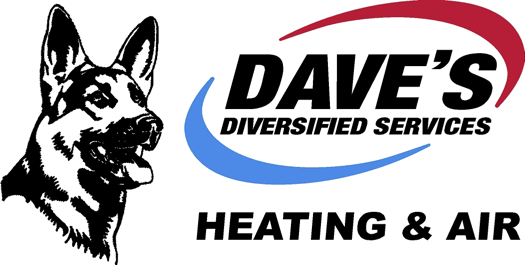Completing the search for your first home is thrilling. You’re likely trying to keep track of numerous details about making the right choice. We believe that understanding your future HVAC system is crucial. The property’s HVAC system represents a significant investment and potential source of long-term costs, illustrating why a detailed inspection is important for first-time homebuyers.
In this guide, we’ll outline seven tips for discovering all there is to know about a home’s heating and cooling system. And if you want a deeper opinion from the pros, don’t hesitate to contact Dave's Diversified Services. Our staff can share details about your options with industry insights you won’t find elsewhere.
1. What HVAC System Are You Working With?
Start by identifying what type of HVAC system the home has. Furnaces generally last longer compared to air conditioners, and relatively new types of HVAC products like heat pumps feature average life spans that are even longer. Tracking down the make and specific model provides a clear idea of how much routine maintenance it might need.
2. How Old Is the Current HVAC System?
It’s just as smart to learn how old the HVAC system is when you’re considering a potential new home. In general, HVAC systems last about 10-12 years. Having the knowledge of when it was installed helps you prepare for any needed servicing or considerations if it might shut down for good. Older systems are at a higher risk of problems, so budgeting for a replacement unit could be necessary sooner than you thought.
3. Is the Warranty Active?
Don’t forget to look into whether the HVAC system is covered by a warranty. If it is, that’s great news because it can lighten the load for maintenance costs. HVAC warranties often cover parts and labor, but the details in each policy will vary. Don’t forget to look into any terms that seem confusing to make sure you fully understand your coverage and potential out-of-pocket costs.
4. Does the System Have a Documented Maintenance History?
Take a close look at the maintenance history of the HVAC system, if this kind of history is accessible. This service history can demonstrate if there have been regular problems or how often maintenance is performed. Ask about records for key tasks such as changing the air filter, which means it enjoyed more regularly scheduled tune-ups.
5. Do You Know Its Energy Efficiency Ratings?
Selecting a system with strong energy efficiency isn’t just smart; it leads to more manageable utility bills and a smaller environmental impact. Locate the seasonal energy efficiency ratio (SEER) ratings for air conditioning and the annual fuel utilization efficiency (AFUE) for furnaces. Higher SEER ratings mean better cooling across the entire season, while higher AFUE ratings indicate that the fuel is efficiently converted into useable heat.
6. Have You Noticed Signs of Problems During Your Inspection?
Even without the know-how of an HVAC technician, it’s still a good idea to check out the HVAC system on your own. Look for any concerning items that might have been overlooked. This includes strange noises, spots with uneven heating or cooling and attempts to cover up any obvious damage.
7. Have You Sought Out Expert Advice?
If you’re unsure about the current state of the HVAC system, it’s wise to get an assessment and recommendation from experienced HVAC technicians. They are skilled at identifying things you might not, including leaks in the refrigerant, bad electrical connections or inefficient ductwork.
A Chat with Dave's Diversified Services Simplifies Your Home-Buying Journey
Choosing your first home ought to be exciting, and Dave's Diversified Services will do everything possible to ensure that doesn’t change. Connect with us at 540-636-3396. We can discuss how our HVAC services help make this process smoother, giving you what you need to step into your new home with confidence.
